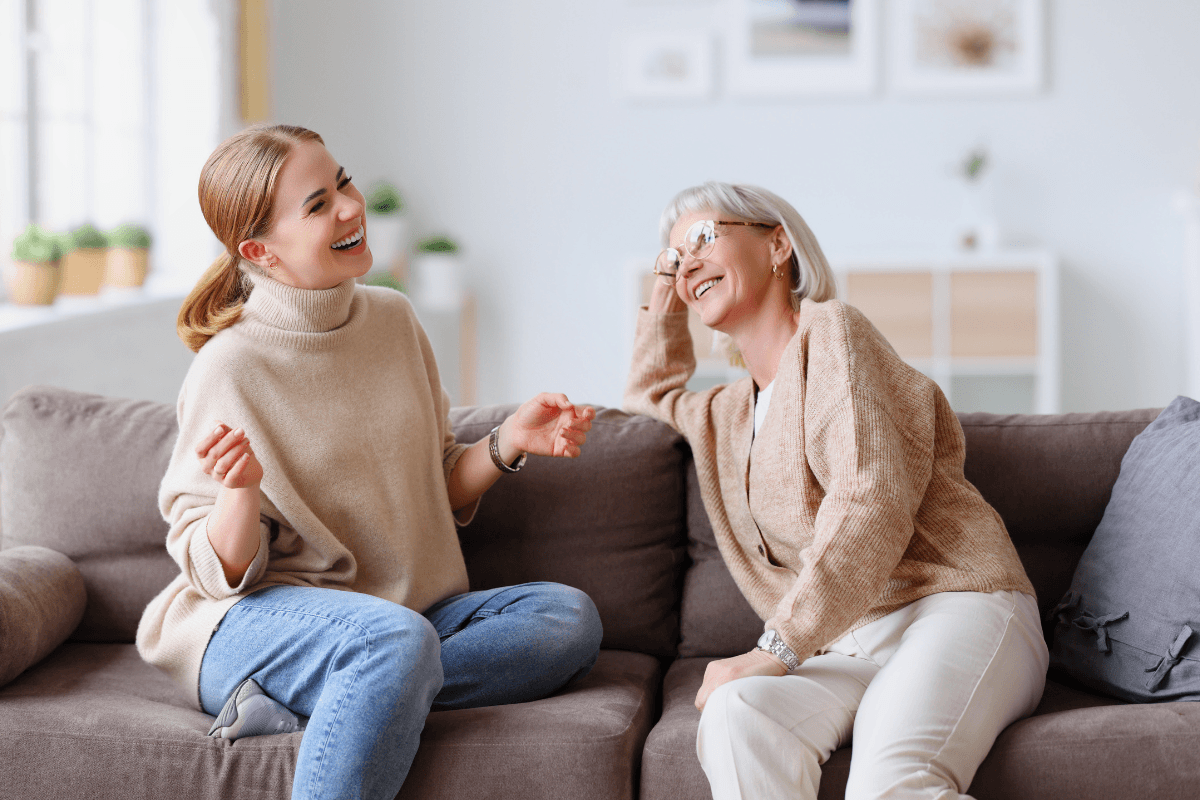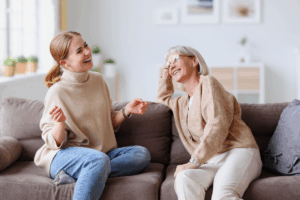As we get older, social circles often shrink. Friends and partners pass away or become unwell, children live far away, and getting out of the house becomes more challenging. For many older Australians, this loss of regular human connection can lead to a serious health concern: social isolation. At Home Care Assistance Australia, our Care Professionals understand how easy it is for older adults to become disconnected, and how critical it is to reconnect them.
Isolation isn’t just about being alone. It’s about feeling alone. And for older people, that feeling can have serious physical, emotional, and cognitive consequences. This blog will discuss who is at risk, what signs to look for, and how you can make a real difference in your loved one’s life.
Who is at risk of isolation and why does it matter?
Social isolation affects a significant portion of older Australians. According to the Australian Institute of Health and Welfare, around 1 in 5 people aged 65+ experience loneliness or limited social contact[1]. That number increases with age and is often worse for people living alone, particularly those in rural or remote areas.
It’s not just about geography; it’s also about health. Older adults managing conditions like Parkinson’s disease, arthritis, dementia, or mobility issues are more likely to reduce their social interactions. Hearing loss, which is common as people get older, can affect communication making conversation frustrating or awkward, leading people to withdraw further.
At Home Care Assistance, we see firsthand how the decline in social engagement can happen quietly. One week without visitors becomes a month or one missed event turns into no events at all. That’s why our in-home care services focus not just on physical support, but on emotional and social wellbeing, too.
What does isolation look like and why is it dangerous?
Social isolation is defined as having little to no regular contact with others. But it’s not always obvious from the outside. Some older people may appear content on the surface, saying they’re “used to being on their own.” But that doesn’t mean they aren’t suffering.
Signs your loved one may be experiencing isolation or loneliness include:
- Withdrawing from social or family activities
- Avoiding phone calls or visits
- A noticeable drop in mood or enthusiasm
- Changes in appetite or sleep patterns
- Forgetfulness or signs of cognitive decline
- Increased anxiety or irritability
The risks are very real. Research has shown that social isolation can be strongly linked to:
- Increased risk of heart disease and stroke
- Weakened immune response
- Clinical depression and anxiety
- Accelerated cognitive decline and dementia
According to the Lancet Commission on Dementia, social isolation is one of 12 key modifiable risk factors for dementia, accounting for up to 40% of preventable cases[2]. This makes staying socially connected not just important, but vital for brain health.
How can you help your loved one reconnect?
Supporting an older person through isolation starts with awareness, but it must lead to action. Here are six practical steps that can have a powerful impact on your loved one’s sense of connection and wellbeing:
Talk and listen regularly
Consistent communication is key. Call frequently, organise video chats, and check in with purpose. Don’t just ask if they’re “okay”, dig deeper with questions like:
“Do you ever feel left out or alone?”
“Have you been able to catch up with anyone lately?”
“Would you like help arranging a visit or outing?”
Sometimes, people don’t realise just how isolated they’ve become.
Encourage social activities
Help them join a local senior group, hobby club, or walking group. If they’re not comfortable attending alone, offer to go with them the first few times. Council-run community centres and libraries often run free events that are low-pressure and welcoming.
Explore digital connections
Many older Australians are embracing video calls, online classes, and even Facebook to stay in touch. Teach your loved one how to use devices confidently or arrange tech support. Some aged care providers, like Home Care Assistance, offer digital literacy support as part of their care services.
Check their hearing and mobility
Isolation can be driven by practical limitations. If your loved one struggles to hear conversations or fears falling outside the home, they’re less likely to engage socially. Arrange a hearing test or consult with a GP or occupational therapist about mobility aids.
Introduce meaningful activities
Keeping the brain and body active helps ward off depression and cognitive decline. Encourage light gardening, puzzles, light stretching or exercise classes. Activities with a purpose, like volunteering, baking for others, or caring for a pet, are particularly powerful for boosting self-worth.
Consider a companion caregiver
When regular family contact isn’t always possible, a professional in-home caregiver can offer more than just help with chores, they can be a friend, a confidant, and a consistent source of human connection.
At Home Care Assistance Australia, we carefully match clients with Care Professionals based on personality, interests, and values. Our clients don’t just get help, they also get companionship, conversation, and social support. We often hear families say, “They’re like part of the family now.”
Where does this support matter most?
At home. For many older people, the home is a place of comfort, but it can also become a source of isolation if no one visits or checks in. That’s why providing social support in the home environment is so effective.
Whether it’s a weekly visit for lunch and conversation, transport to a community centre, or regular walks around the neighbourhood, Home Care Assistance tailors care to the individual’s routine and preferences so they feel comfortable, connected, and in control of their own life.
Our Care Professionals are trained to look out for subtle signs of loneliness and to proactively engage older adults in meaningful ways.
When should you step in?
Now. Don’t wait for isolation to lead to a crisis. If your parent or grandparent is spending more and more time alone, or simply just “seems off”, it’s time to act. Early support can prevent depression, maintain mental sharpness, and significantly improve overall wellbeing.
You don’t have to navigate this alone. At Home Care Assistance Australia, we provide the resources, care, and emotional support families need to keep their loved ones safe and socially connected, at home and on their terms.
Support at home from a specialist provider, such as Home Care Assistance, can bring enormous benefits and comfort to your quality of life while living independently at home. Home Care Assistance offers viable solutions for supporting independent living. For more information, get in touch with a Home Care Assistance near me today.
[1] https://www.aihw.gov.au/mental-health/topic-areas/social-isolation-and-loneliness
[2] https://www.thelancet.com/journals/lanpub/article/PIIS2468-2667(23)00146-9/fulltext#:~:text=%E2%88%99%20et%20al.-,Dementia%20prevention%2C%20intervention%2C%20and%20care:%202020%20report%20of%20the,India%2C%20and%20Latin%20America5
As a leading age care provider, Home Care Assistance offers tailored in-home care services for older Australians, enabling them to live happier and healthier lives in the comfort of their own homes.
We offer private and government subsidised Care Packages and have office locations that are a registered NDIS provider. Our Care Workers undergo extensive training in order to deliver unmatched in-home aged care services where people can continue ageing in place. We are proud ambassadors of the My Aged Care government funded aged care program, enabling Australians to successfully navigate the process and gain approval for in-home care support packages. Home Care Assistance offers hourly care, specialised care, Alzheimer’s and Dementia care, hospital to home care, and 24 hour in home care.













